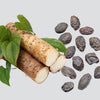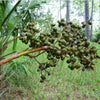The Truth Behind Fake Organic and Grass-Fed Certification Clams in Tallow-Based Skincare

The Truth Behind Fake Organic and Grass-Fed Certification Clams in Tallow-Based Skincare
In the burgeoning market for natural and organic skincare products, tallow-based items have gained significant popularity due to their rich nutrient profile and skin-nourishing properties. However, with this surge in demand, there has also been a rise in misleading claims about the organic and grass-fed status of the tallow used in these products. This article delves into the reality of these certifications and highlights what consumers should look for to ensure they are purchasing genuinely certified products.
Why Should You Care?
Certified grass-fed organic beef tallow is important because it ensures that the fat, which is where animals store many of their nutrients, is free from harmful toxins and chemicals often found in conventionally raised livestock. When cattle are raised on a conventional diet, they are typically exposed to pesticides, antibiotics, and synthetic hormones, all of which can accumulate in their fat. Using tallow from these animals can therefore introduce these undesirable substances into your body, potentially causing more harm than good in the long term. In contrast, grass-fed organic beef tallow comes from animals that graze on natural pastures and are not subjected to such chemicals, resulting in a purer, more nutrient-dense product that aligns better with a health-conscious lifestyle.
The Math Doesn't Add Up
Although 98% of cattle in Canada and the USA are packed in crowded feedlots and grain fed with cheap GMO corn and barley, it's noticeable that almost every brand or retailer is trying to make claims that their tallow is organic and grass-fed and finished. One of the largest fraud investigation in the organic industry.

Most Labels Are About Marketing - Not Quality
Recognizing that health-conscious consumers, like you, rely on labels to assess the quality and guarantee of the product, health-conscious consumers should get the expected quality they deserve. It’s unfortunate that some brands utilize labels as a vital tactic to boost profits and drive sales.
At Authentic Body And Soul, as the company behind our label, we are more than happy to show you our receipts for bulk purchases to demonstrate our commitment to integrity, trust and quality. Ultimately, trust is something that cannot be categorized, controlled, or mandated.
The Illusion of Certification
Many skincare brands boast that their tallow is sourced from organic and grass-fed animals, but without proper verification, these claims can be dubious. The analysis of tallow composition alone is insufficient to prove its certification status. A sample of tallow could indeed show high nutritional values consistent with organic and grass-fed suet, but this does not guarantee that the bulk of the production follows the same standards. Unscrupulous manufacturers might use a small portion of quality suet to pass tests, while the rest of the batch comes from lower-quality sources.
The Importance of Verification
To ensure the authenticity of organic and grass-fed claims, consumers should demand transparency from skincare brands. According to Canadian regulations, merely stating that a product is organic or grass-fed without following regulations is not acceptable. Legitimate certifications require the name of the certifying body to follow the claim assertion. Without these details, the product cannot be considered truly certified. Authentic Body And Soul offers clear documentation of purchase that indicates "certified, organic, and grass-fed." Consumers should look for these specifics when choosing products from brands.
USDA Certified?
Did you know that...
Beef labeled as "organically" produced may still be fed grain and kept in feedlots for some duration of their life. Contrary to popular belief, the "organic" grain used for cattle feed can still be cultivated with chemical pesticides.
Visit the USDA’s website for a full list of approved synthetic pesticides for organic production
Empowering Consumers
For consumers, the key to navigating this complex landscape lies in diligence and informed decision-making. What to look for when evaluating tallow skincare products?
- The name of the certifying body, and the year of certification.
- Any claims of certified or organic assertions must include the name of the certifying body. This is a legal requirement and a quick way to weed out false products. For instance, if a brand claims to offer "organic," it should specify the name of the organization that certified the farm. If such details are missing, it’s a red flag that the claim may not be legitimate.
- Reputable brands will not shy away from providing this information along with images of their receipts of purchase. This level of transparency not only builds trust but also ensures that consumers are getting what they paid for—genuine organic and grass-fed tallow that meets stringent quality standards.
- Be wary of brands that use vague terms like "fatty acids" or "lipids" without specifying their source of certification, and their bulk purchase receipts.
In conclusion, while the market for tallow skincare products is filled with promising options, it is essential to remain vigilant about the authenticity of organic and grass-fed claims. By demanding, at a minimum, that brands follow the regulations that are put in place to protect consumers from misleading and false claims, and support truly transparent ethical tallow-based skincare brands.
For certified organic grassfed tallow skincare check us out here
- Posted in Canadian certified tallow skincare, certified grass fed tallow soap, certified grassfed tallow skincare, certified organic tallow cream, certified tallow skincare, organic skincare, organic tallow, organic tallow balm, organic tallow cream, organic tallow skincare, organic tallow soap, paleo, paleo certified ingredients, tallow balm, the good the bad and the ugly about tallow, vegan certified ingredients







